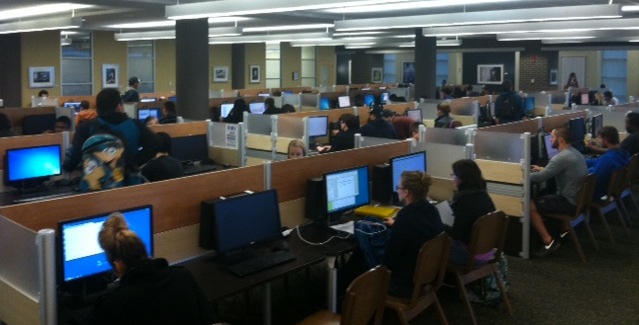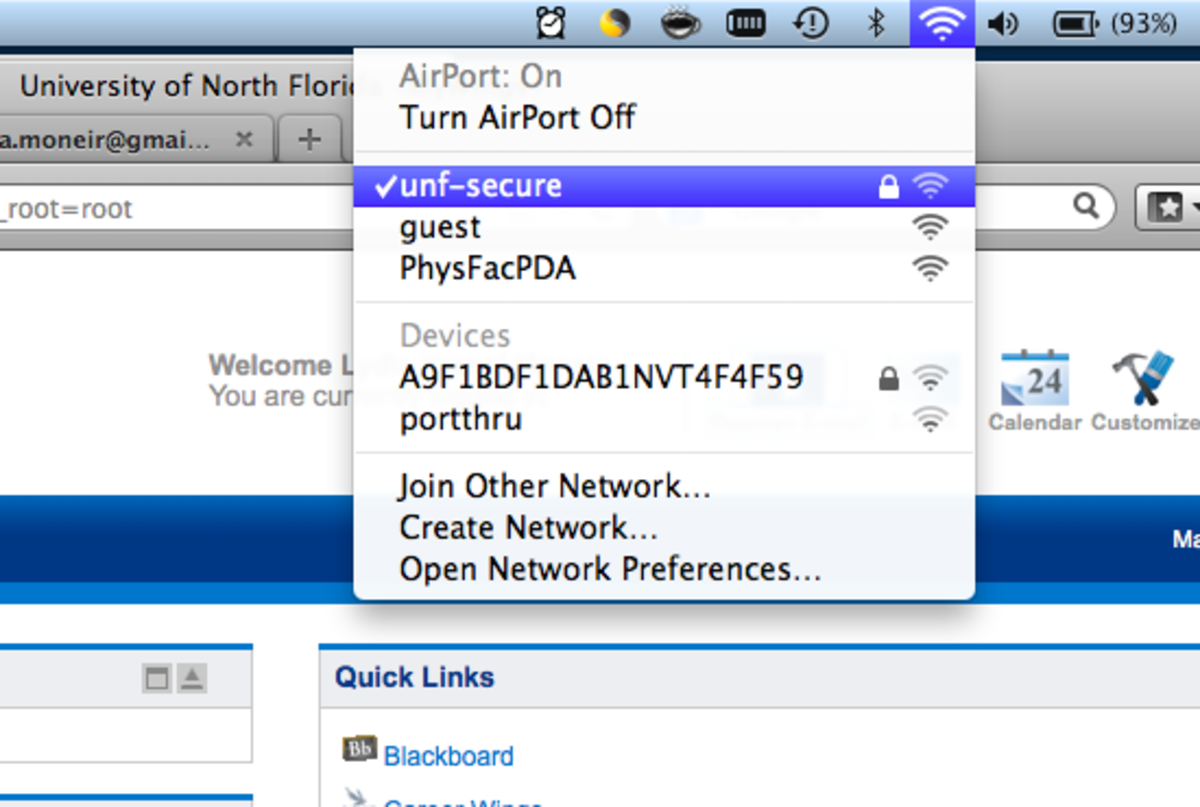Recent Wi-Fi issues stem from a sheer increase in volume of electronic devices in use on campus, said Assistant Director of Network Engineering Steve Lyon.
Lyon said UNF uses three times more bandwidth than it did a year ago.
He said it’s hard to keep up.
“You’re chasing something that is always moving, and as of the last year, year and a half it’s moving far faster than it ever has.”
Lyon said the university operates on a semester basis and they can only estimate the demand on the network at the beginning of any given semester.
Lyon said UNF has tripled its amount of Internet access within the last two years and has a huge wireless network with a thousand access points.
He said over the last couple semesters there has been a substantial increase in network use and he sees 67,000 different IP addresses daily just on the guest networks.
He said he encourages everyone to connect to the secure network if possible because those are authenticated networks.
Lyon said on-campus housing has been most affected by connection issues.
“Last summer and this summer just coming by we radically changed the architecture to better improve the coverage for each of the access points.”
Lyon said now the demands are increasing because the capacity has increased.

Photo by Blake Middleton
He said the busiest time for the network is between 6 p.m. and 2 a.m. because of the constant flow of Netflix, Hulu, and game streaming. Unlike a cable channel which only streams once no matter how many separate people are watching, Lyon said every Netflix show requires a separate stream, so it’s a whole different ball game.
Lyon said the problem is the amount of time it takes between recognizing the increase in demand, receiving funds, then ramping up to meet that increase.
He said ITS is purchasing more hardware, putting more access points out, and encouraging students to use the secure networks to help fix these issues. He said ITS is also working with housing to try to figure out what funds are available and how to use them in order to increase the bandwidth.

He said notification is the strongest thing that can be done to correct problems with Internet connection.
Most students complain to their friends about terrible Wi-Fi, he said, rather than reporting it to the ITS help desk.
Lyon said they can’t fix the problem if the complaint base flies completely under radar. When he receives a complaint from either the help desk or Housing, he said they go out to the site and fix the problem.
Jeremy Duckworth, the ITS Service Desk Manager, said the help desk received 125 requests to fix wi-fi related problems in Fall 2014.

Photo by Blake Middleton
Duckworth said well over 95 percent of those problems were solved within one or two days.
Lyon said ITS strongly recommends that students use a wired connection when in their dorms and not Wi-Fi. He said wired connections have more capacity and are faster.
Julian Thomas, Computer Science freshman, said he has trouble connecting to Wi-Fi in his dorm so he goes to places around campus instead. He said he hasn’t tried taking it to the ITS help desk because he’s not in his room often anyways.
Gabriel Jodzio, Psychology freshman, said he had a problem with Wi-Fi connection when he first moved into the dorms. He took his laptop to the ITS help desk and it was fixed within a day. He said he usually uses his laptop at the library because it’s faster than in the dorm.
Email Blake Middleton at reporter32@unfspinnaker.com







